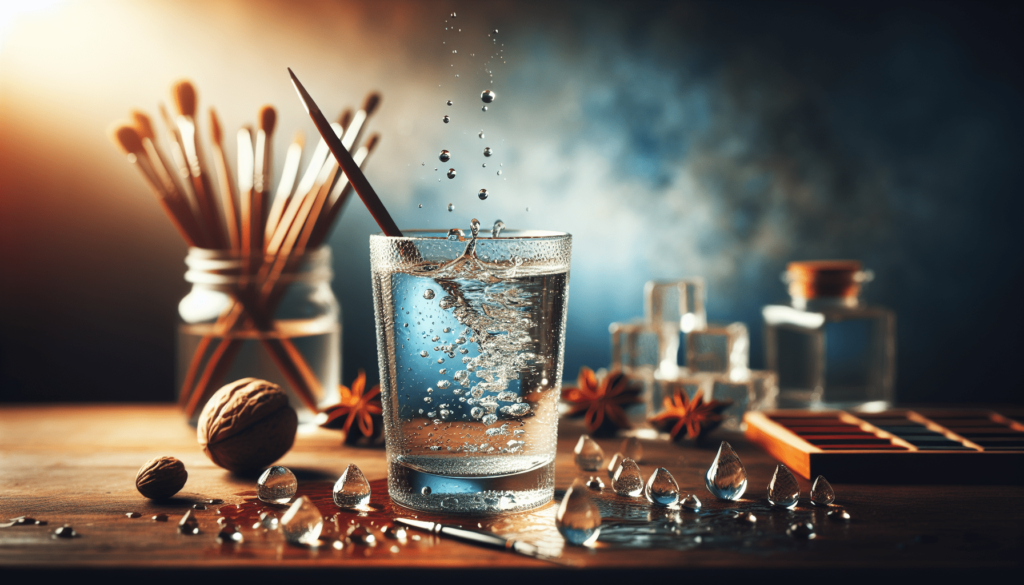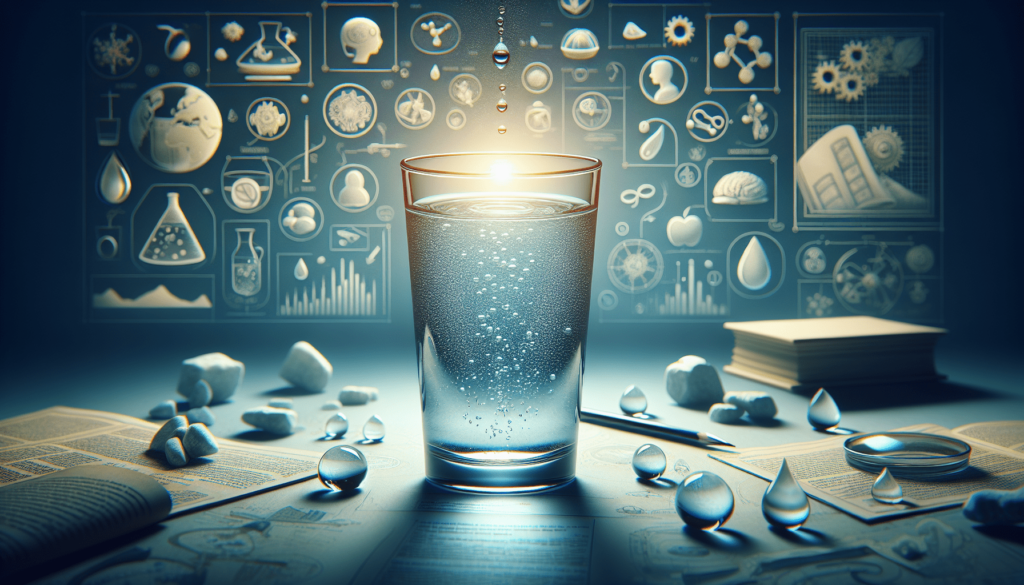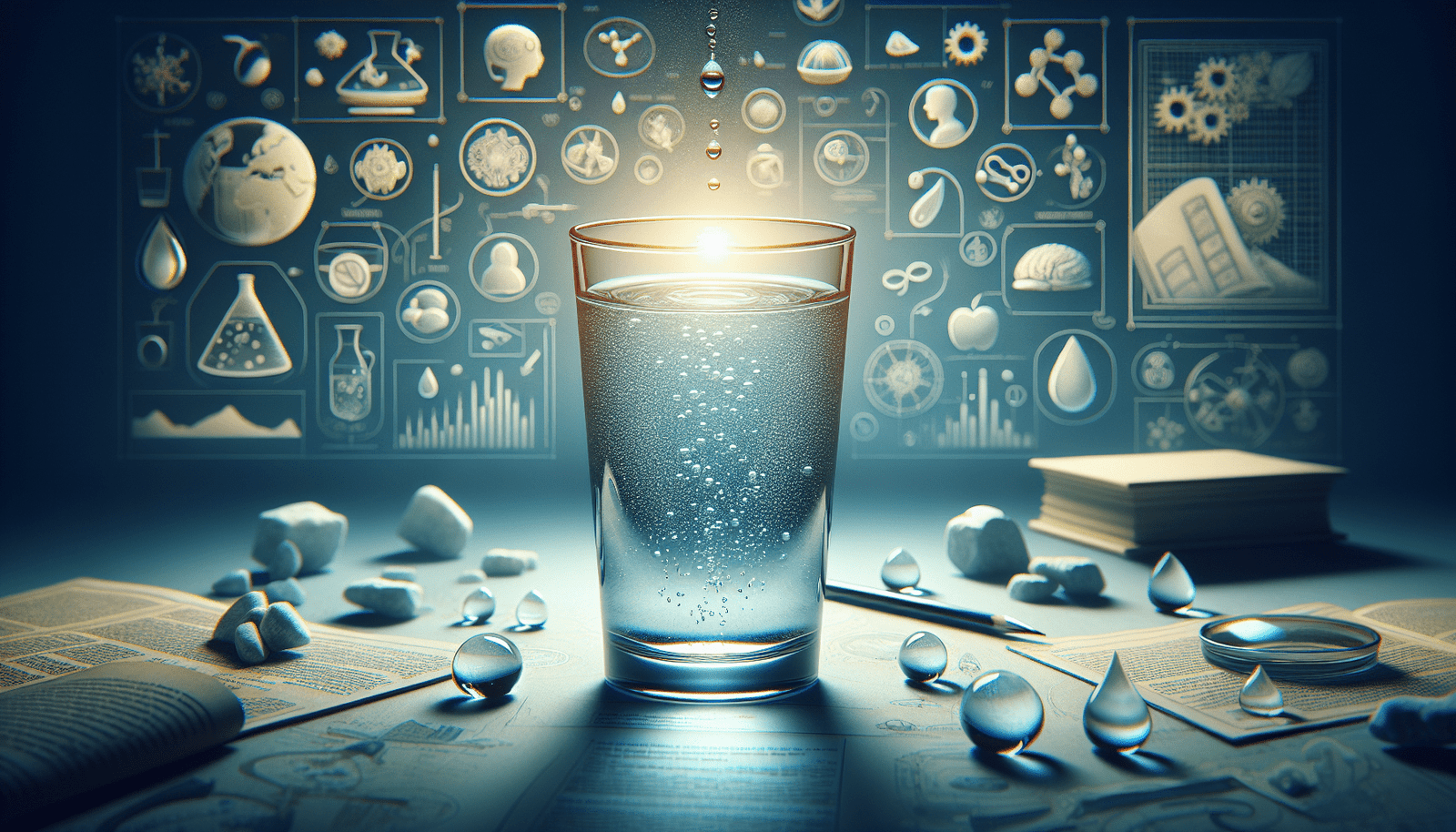Do you know how much water you really need to stay hydrated? In this article, we will explore the topic of hydration and delve into the question of how much water our bodies truly require. Whether you’re an avid athlete, a busy professional, or simply someone who wants to maintain optimal health, understanding your hydration needs is crucial. So, grab a glass of water and join us as we zero in on the importance of hydration and uncover the truth behind how much water you really need.
Importance of Hydration
Understanding the role of water in the body
Water is an essential component of our bodies, making up about 60% of our total body weight. It plays a crucial role in maintaining our overall health and well-being. Water is involved in almost every bodily function, from digestion and absorption of nutrients to regulating body temperature and removing waste products. It helps transport nutrients and oxygen to our cells, lubricates joints, and protects our organs and tissues. Without proper hydration, our bodies cannot function optimally.
Effects of dehydration on the body
When our bodies do not have enough water to function properly, dehydration occurs. Even mild dehydration can have detrimental effects on our physical and mental performance. Some common symptoms of dehydration include increased thirst, dry mouth, dark-colored urine, fatigue, dizziness, and headache. As dehydration progresses, it can lead to more serious complications such as muscle cramps, low blood pressure, rapid heartbeat, and even heat stroke. It is important to recognize the signs of dehydration and take steps to prevent it.
Importance of maintaining proper hydration levels
Maintaining proper hydration levels is crucial for our overall health and well-being. Being adequately hydrated can have numerous benefits, including improved digestion, increased energy levels, enhanced cognitive function, and healthier looking skin. Additionally, proper hydration helps to prevent constipation, kidney stones, and urinary tract infections. By ensuring that our bodies have enough water, we are supporting all of its vital functions and promoting optimal functioning.
Factors Affecting Hydration Needs
Individual differences
Each person’s hydration needs can vary based on individual factors such as age, weight, gender, and overall health. Children and older adults, for example, may have higher hydration needs compared to young, healthy adults. Additionally, people who are pregnant or breastfeeding may require more water to support the needs of their growing baby. It is important to take these individual differences into account when determining hydration needs.
External factors
External factors such as climate, altitude, and humidity can also affect our hydration needs. In hot and humid environments, we tend to sweat more, leading to increased water loss. Similarly, at higher altitudes, the body loses more water through respiration due to the lower humidity levels. It is important to be aware of these external factors and adjust our hydration habits accordingly.
Physical activity level
Another crucial factor that affects hydration needs is the level of physical activity. When we engage in exercise or any strenuous physical activity, our bodies lose water through sweat. It is essential to replenish this lost water to maintain proper hydration levels. The duration and intensity of the activity, as well as the individual’s sweat rate, will determine the amount of water needed to stay hydrated during exercise.

Recommended Daily Water Intake
Overview of general guidelines
While there is no one-size-fits-all approach to water intake, there are general guidelines that can help guide us in determining our daily water needs. The Institute of Medicine (IOM) recommends a daily water intake of about 3.7 liters (125 ounces) for men and 2.7 liters (91 ounces) for women. However, these recommendations may vary based on individual factors such as activity level, body weight, and climate.
Fluid requirements based on age and gender
In addition to the general guidelines, specific fluid requirements may vary based on age and gender. Children, for instance, have different hydration needs compared to adults. The American Academy of Pediatrics (AAP) recommends that children aged 4 to 8 consume about 1.7 to 2.4 liters (57 to 81 ounces) of fluids per day. For adolescents, the recommendation increases to around 2.7 to 3.7 liters (91 to 125 ounces) per day. Pregnant and breastfeeding women also have higher fluid requirements to support their changing bodies and the needs of their growing baby.
Determining specific water needs
While the guidelines provide a helpful starting point, it is important to listen to your body and pay attention to individual hydration cues. Factors like activity level, sweat rate, and the climate you live in can affect your water needs. Additionally, monitoring the color of your urine can be a good indicator of hydration levels – clear or light yellow urine is a sign of adequate hydration, while dark-colored urine may indicate dehydration. Remember to adjust your water intake accordingly to meet your specific hydration needs.
Water Sources Beyond Plain Water
Consideration of alternative sources
While plain water is the best choice for hydration, there are other sources of water that can contribute to our daily fluid intake. Beverages like herbal tea, unsweetened coffee, and milk can also contribute to hydration. However, it is important to be mindful of added sugars and other additives in some beverages, as they may have negative health effects. It is best to choose these alternative sources wisely and prioritize water as the main source of hydration.
Fruits and vegetables as hydration sources
In addition to beverages, fruits and vegetables can also be valuable sources of hydration. Many fruits and vegetables have high water content, making them an excellent choice to increase fluid intake. Watermelon, cucumber, strawberries, and lettuce are examples of hydrating fruits and vegetables. Incorporating a variety of these foods into your diet can not only provide hydration but also essential vitamins, minerals, and antioxidants.
Other beverages’ contribution to hydration
While it is important to prioritize water as the main source of hydration, other beverages can contribute to our fluid intake as well. However, it is essential to be aware of the potential drawbacks of certain beverages. Alcoholic and caffeinated beverages, for example, can have diuretic effects, leading to increased urine production and potential dehydration. It is best to consume these beverages in moderation and balance them with adequate water intake.

Signs of Dehydration
Recognizing common symptoms
Recognizing the signs of dehydration is crucial in preventing further complications. Some common symptoms of dehydration include increased thirst, dry mouth and throat, reduced urine output, darker urine, fatigue, dizziness, and headaches. These symptoms serve as warning signs that our bodies need more water to function properly.
Understanding the different stages of dehydration
Dehydration can occur in varying degrees, with different stages indicating different levels of severity. Mild dehydration usually presents with symptoms like increased thirst and dry mouth. Moderate dehydration can cause symptoms such as reduced sweating, rapid breathing, and muscle cramps. Severe dehydration is a medical emergency and may require immediate medical attention. Symptoms of severe dehydration include extreme thirst, minimal urine output or dark-colored urine, rapid heartbeat, confusion, and even unconsciousness. It is important to take action and rehydrate as soon as possible to prevent dehydration from progressing to a more severe stage.
Myths and Misconceptions
Busting common myths about water consumption
There are several myths surrounding water consumption that can lead to confusion about hydration. One common myth is that everyone needs to drink eight glasses of water per day. While it is important to stay hydrated, there is no specific requirement for eight glasses of water. Another myth is that thirst is a reliable indicator of hydration status. While thirst can be a signal that our bodies need water, it is not always an accurate indicator. It is important to be mindful of these myths and focus on individual hydration needs.
Clarifying misconceptions about hydration
There are also misconceptions about hydration that need clarification. For instance, some people believe that only water can hydrate the body, while other beverages and foods have no hydrating effect. In reality, a variety of fluids and foods can contribute to our hydration. It is also a misconception that drinking more water than necessary will lead to better hydration. Our bodies are efficient at regulating water balance, and excessive water intake can have negative consequences. It is important to understand these misconceptions and prioritize a balanced approach to hydration.
Hydration Strategies for Different Situations
Optimal hydration during physical activity
Staying properly hydrated during physical activity is crucial for performance and overall health. Before exercising, it is important to hydrate adequately by drinking water or a sports drink. During exercise, aim to drink water regularly to replace the fluids lost through sweat. The American College of Sports Medicine (ACSM) recommends consuming about 400 to 800 milliliters (14 to 27 ounces) of fluid per hour of exercise. After exercise, continue to replenish fluids to rehydrate your body.
Hydration tips for hot weather and high altitude
In hot weather, our bodies lose more water through sweat, increasing the risk of dehydration. To stay hydrated, it is important to drink plenty of water before, during, and after exposure to high temperatures. Additionally, wearing light and breathable clothing and seeking shade when possible can help prevent excessive fluid loss. Similarly, at higher altitudes, the lower humidity levels can lead to increased water loss through respiration. It is important to stay hydrated and be aware of these unique challenges when in high-altitude environments.
Hydration needs during illness
When we are sick, our bodies may have increased fluid requirements to support the healing process. It is essential to drink plenty of fluids, especially water, when experiencing illnesses associated with fever, vomiting, or diarrhea. These conditions can lead to increased fluid loss and dehydration. Sip water slowly and frequently, and consider consuming electrolyte-rich fluids like sports drinks to replenish lost electrolytes. In severe cases of illness or dehydration, seek medical attention.
Water Intake and Weight Loss
The relationship between water consumption and weight loss
Water consumption can play a role in weight loss and weight management. Drinking water before meals can help reduce appetite and calorie intake, as it provides a feeling of fullness. Studies have shown that individuals who consume more water tend to have a lower body weight and body mass index (BMI). Additionally, water does not contain any calories, making it a calorie-free choice for hydration.
Effect of water on metabolism and appetite control
Water can also have an impact on our metabolism and appetite control. Proper hydration helps maintain optimal metabolic function, which is crucial for weight management. Drinking enough water can also help prevent overeating, as thirst can sometimes be mistaken for hunger. By staying properly hydrated, we can support our overall weight loss efforts and maintain a healthy weight.
Hydration and Sports Performance
Understanding the impact of dehydration on athletic performance
Dehydration can significantly affect athletic performance. Even mild dehydration can lead to decreased endurance, impaired cognitive function, and reduced muscle strength. As our bodies lose water through sweat during exercise, it is important to replenish these lost fluids to maintain optimal performance. Dehydration can also affect heart rate, body temperature regulation, and overall exercise capacity. Proper hydration before, during, and after exercise is essential for peak performance.
Strategies for pre-, during, and post-exercise hydration
To optimize hydration during sports and exercise, it is important to follow a few strategies. Before physical activity, ensure you are adequately hydrated by drinking water in the hours leading up to exercise. During exercise, drink water or sports drinks regularly to replace fluids lost through sweat. The American Dietetic Association (ADA) recommends consuming about 16 to 20 ounces of water at least 4 hours before exercise, 8 to 10 ounces every 10 to 20 minutes during exercise, and another 16 to 24 ounces for every pound of body weight lost after exercise. These guidelines may vary depending on individual factors such as sweat rate and duration of exercise.
Hydration for Special Populations
Hydration needs for pregnant women
Pregnant women have increased fluid requirements to support the needs of both their bodies and their growing baby. The American College of Obstetricians and Gynecologists (ACOG) recommends that pregnant women consume about 3 liters (101 ounces) of fluids per day. Adequate hydration during pregnancy helps with digestion, circulation, and maintaining amniotic fluid levels. It is important for pregnant women to focus on their hydration needs and consult with their healthcare provider if they have any specific concerns.
Effects of aging on hydration requirements
As we age, our bodies may experience changes that affect our hydration needs. Older adults may have a diminished sense of thirst, which can put them at risk of dehydration. The National Academy of Medicine recommends that older adults aim for a daily fluid intake of about 2.7 liters (91 ounces) for men and 2.2 liters (74 ounces) for women. It is important for older adults to be conscious of their hydration status and stay adequately hydrated, especially during hot weather or illness.
Hydration considerations for children and infants
Children and infants have unique hydration needs that require attention and care. The American Academy of Pediatrics (AAP) provides guidelines for fluid intake in children based on age and weight. Infants, for example, typically consume fluids through breast milk or formula. For children, the AAP recommends water as the primary source of hydration, with age-specific guidelines for daily fluid intake. It is important to monitor fluid intake in children and seek medical advice if there are any concerns about hydration levels.
In conclusion, staying properly hydrated is crucial for our overall health and well-being. Water plays a vital role in our bodies, and maintaining proper hydration levels supports all of our bodily functions. Individual factors, external factors, and physical activity level can all affect our hydration needs. While general guidelines can help determine daily water intake, it is important to listen to your body and adjust water intake accordingly. While water is the best choice for hydration, other sources such as fruits, vegetables, and certain beverages can also contribute to our fluid intake. Recognizing the signs of dehydration and debunking myths and misconceptions about hydration are essential. Strategies for optimal hydration in different situations, such as during physical activity or illness, are important to follow. Water intake can also have effects on weight loss, sports performance, and hydration needs for special populations such as pregnant women, older adults, and children. By understanding the importance of hydration and implementing appropriate strategies, we can ensure that our bodies are properly hydrated and functioning at their best.

